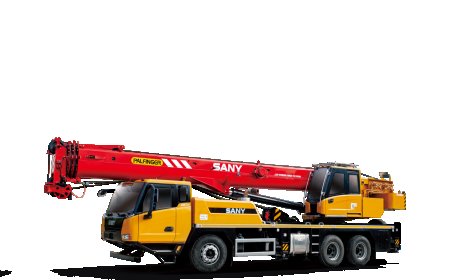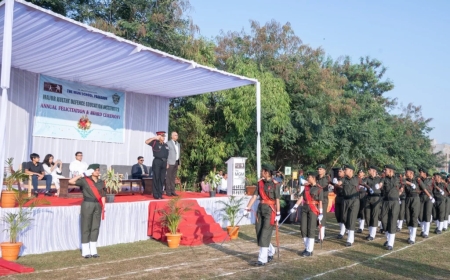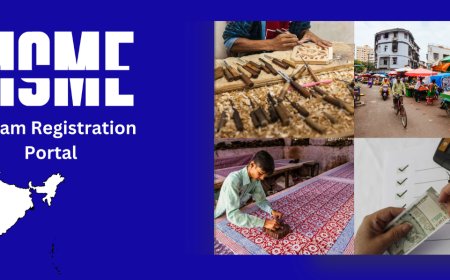International Labour Day
International Labour Day, observed on May 1st, honors the contributions of workers worldwide and promotes fair labor practices, rights, and dignity for all.

Every year on May 1st, the world observes International Labour Day, also known as International Workers' Day or May Day. It is a celebration of the working class and a recognition of the vital role they play in building and sustaining economies. Rooted in the historical struggle for fair labour rights, this day commemorates the achievements of workers while highlighting the ongoing pursuit of dignity, equality, and justice in the workplace.
International Labour Day is not just a holiday; its a tribute to the tireless contributions of labourers across all industries and countries. From construction workers to software developers, from farmers to factory workers every professional contributing with dedication and hard work is celebrated on this day.
Historical Background of Labour Day
The origin of Labour Day dates back to the labour union movement in the late 19th century, particularly in the United States. At the heart of this movement was the demand for an eight-hour workday. During the Industrial Revolution, workers were subjected to grueling 10-16 hour workdays in poor and unsafe conditions. There were no minimum wage laws or workplace protections.
On May 1, 1886, American labour unions organized a nationwide strike demanding an eight-hour workday. In Chicago, the protest turned violent during an incident known as the Haymarket Affair, where a bomb was thrown at police officers, resulting in deaths and widespread chaos. Though the exact perpetrators were never clearly identified, the event had a profound impact on the labour movement.
In 1889, the Second International, a global association of socialist and labour parties, declared May 1st as International Workers' Day, to honour those who fought for labour rights and to continue advocating for better conditions globally.
Significance of International Labour Day
International Labour Day symbolizes much more than a date on the calendar. It reflects:
-
Recognition of Worker Contributions
Workers are the backbone of any society. This day acknowledges their efforts and contributions toward national and global development. -
Awareness of Labour Rights
It serves as a reminder of the importance of labour laws, including fair wages, safe working conditions, reasonable work hours, and freedom from exploitation. -
Solidarity Among Workers
The day unites workers across countries and sectors, fostering a sense of solidarity and shared identity in their common struggles and achievements. -
Continued Advocacy for Change
Although labour rights have advanced in many parts of the world, challenges like wage inequality, child labour, unsafe working environments, and job insecurity still persist. Labour Day fuels ongoing activism and policy reforms.
Labour Day Celebrations Around the World
India
In India, Labour Day is celebrated as Antarrashtriya Shramik Diwas. The first celebration was observed in Chennai on May 1, 1923, organized by the Labour Kisan Party of Hindustan. Indian workers today enjoy several legal rights including minimum wages, maternity leave, and protection from hazardous working conditions, thanks to laws shaped by decades of advocacy.
Rallies, speeches, and cultural programs are common in cities and towns across India on this day. Labour unions often use the occasion to voice current demands or protest against unjust practices.
United States
Interestingly, while the movement originated in the U.S., Labour Day in the U.S. is celebrated on the first Monday of September, not May 1st, due to historical political concerns about the Haymarket Affair. Its a federal holiday marked by parades, community events, and reflections on the nations workforce.
Europe
In countries like Germany, France, Spain, and Italy, International Labour Day is a public holiday with massive demonstrations, organized by trade unions and workers organizations. The events often address issues like wages, pension reforms, and anti-globalization sentiments.
Asia and Africa
Countries such as China, South Korea, Nigeria, and South Africa also observe Labour Day as a public holiday. Celebrations may include rallies, concerts, educational events, and public speeches by political leaders and labour representatives.
Modern-Day Labour Challenges
Despite significant progress, workers today face a new set of challenges, especially in the modern economy:
-
Gig Economy and Informal Labour
With the rise of freelancing, delivery services, and contract-based work, many workers fall outside traditional labour protections. They often lack health benefits, insurance, and job security. -
Wage Inequality
Even in developed economies, wage gaps persist across gender, class, and race. Many workers earn far below living wages, particularly in developing nations. -
Workplace Automation
Artificial intelligence and automation have begun to replace jobs, particularly in manufacturing and administrative roles, putting millions at risk of redundancy. -
Mental Health
Long hours, poor work-life balance, and high stress are contributing to mental health issues, especially among corporate employees and frontline workers. -
Child Labour and Exploitation
In some regions, child labour, unsafe working environments, and bonded labour remain major human rights violations, despite existing laws.
The Role of Governments and Organizations
To truly honour the spirit of Labour Day, governments, companies, and civil society must:
-
Enforce Labour Laws Strictly: Governments must ensure all employers follow regulations related to wages, hours, workplace safety, and social security.
-
Protect Gig and Informal Workers: New policies are needed to extend benefits and protections to those outside the traditional employment sector.
-
Encourage Unionization: Trade unions remain powerful instruments for collective bargaining and protecting worker interests. Their rights must be safeguarded.
-
Invest in Skill Development: As automation and AI reshape the job market, workers need access to training and reskilling opportunities.
-
Promote Work-Life Balance: Employers must foster a healthy workplace culture that supports mental wellness and reasonable working hours.
Quotes to Inspire on Labour Day
-
All labour that uplifts humanity has dignity and importance. Martin Luther King Jr.
-
Without labour, nothing prospers. Sophocles
-
The end of labour is to gain leisure. Aristotle
These quotes remind us that labour is not just about earning a livelihoodits about shaping society, driving progress, and building a better future for all.
Conclusion
International Labour Day is not just a commemoration of historical strugglesit is a call to action. It urges us to appreciate workers not just once a year, but every single day. As we honour the sweat, skill, and sacrifices of workers across the world, we must also look forward to a future of work that is fair, inclusive, and humane.
Whether you're a teacher, cleaner, engineer, driver, coder, farmer, or doctor your contribution matters. And on May 1st, the world stands united in saying: Thank you, workers, for building the world we live in.



























